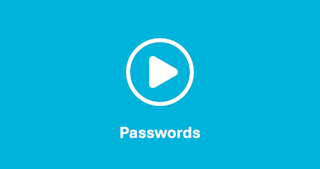
Protect yourself from hacking: passwords
featuredProtect your online accounts with strong passwords. This short video shows you how to create robust passwords, manage them securely, and prevent unauthorized access.
It goes without saying that online safety and security are ranked very highly at Keytrade Bank. It is constantly on our radar. Moreover, in the continuous struggle between user-friendliness and security, the latter will get the upper hand.
Did you give an unknown individual access to your personal bank data through the phone? Did you notice an unknown payment on your account that you did not do yourself? Did you lose your smartphone? Or was it stolen?
Fraudsters have their own modus operandi. They combine fear with perseverance and a quick way out. Are they frightening you? Are they being too pushy? Are they offering a swift and easy solution? You only need to click to open an attachment or a link?
Credit card or Visa Debit at our bank? Block it yourself via the app or transaction site.
Call Card Stop at 078 170 170 to have the card blocked!
Or contact us.
Discover practical tips to strengthen your online security, from protecting against phishing to creating strong passwords and downloading antivirus software.
Protect your online accounts with strong passwords. This short video shows you how to create robust passwords, manage them securely, and prevent unauthorized access.
This short video shows you how to recognize and avoid phishing, helping you stay safe on the internet.
Prevent data loss from hacking or technical issues. This short video shows you why backups are essential and how to easily protect your valuable information.
Febelfin, the FSMA, the Federal Police of Belgium and the Center for Cybersecurity Belgium have made a video to make you aware of 'investment fraud' and the risks you take when you invest with a party you do not know.
Don't believe just anyone on social media, because this form of fraud has already made many victims in Belgium.
Video is in French:

